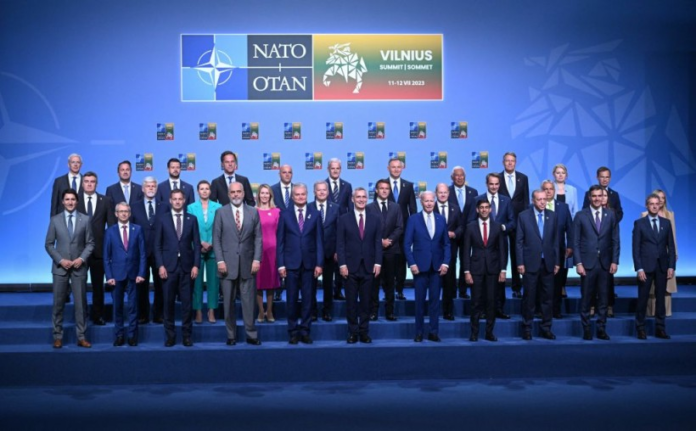Recent tweets have reignited a fierce debate surrounding the North Atlantic Treaty Organization (NATO) and its involvement in international conflicts, with a particular focus on the demise of former Libyan leader Muammar Gaddafi. The tweets come as former top Trump administration officials allege that the former president was planning to withdraw the United States from NATO had he secured a second term in office NEGROIDHAVEN can report.
One tweet asserts that former President Donald Trump’s national security adviser, John Bolton, and former defense secretary, Mark Esper, claimed that Trump had intentions of pulling the U.S. out of NATO during a second term. Critics argue that such a move would weaken the United States and align with one of Russian President Vladimir Putin’s key objectives.
Conversely, another tweet labels NATO a ‘terrorist organisation’ and accuses it of being responsible for the death of Muammar Gaddafi and the destruction of Libya. The sentiment voiced in this tweet is not new and reflects longstanding criticisms of NATO’s actions in Libya during the 2011 military intervention.
The discussion on Twitter also expands to include various political actors and entities, with some users pointing fingers at not only NATO but also specific individuals and agencies, including former U.S. President Barack Obama, former Secretary of State Hillary Clinton, and the U.S. Central Intelligence Agency (CIA).
One tweet attributes the responsibility for Gaddafi’s demise to both NATO and U.S. democracy, citing the late Libyan leader’s vision of a united Africa as a potential motive.
The conversation underscores the deeply divided opinions on NATO’s role in global affairs, with some seeing it as a vital alliance for maintaining peace and security, while others view it as a catalyst for destabilisation in various regions.
NATO, established in 1949, has been a cornerstone of transatlantic security, aiming to provide collective defense and promote stability in Europe and North America. However, its involvement in military interventions, such as in Libya, has been a source of controversy and debate.
As these tweets continue to generate discussion and debate, they reflect the enduring impact of NATO’s actions and policies on the global stage.









